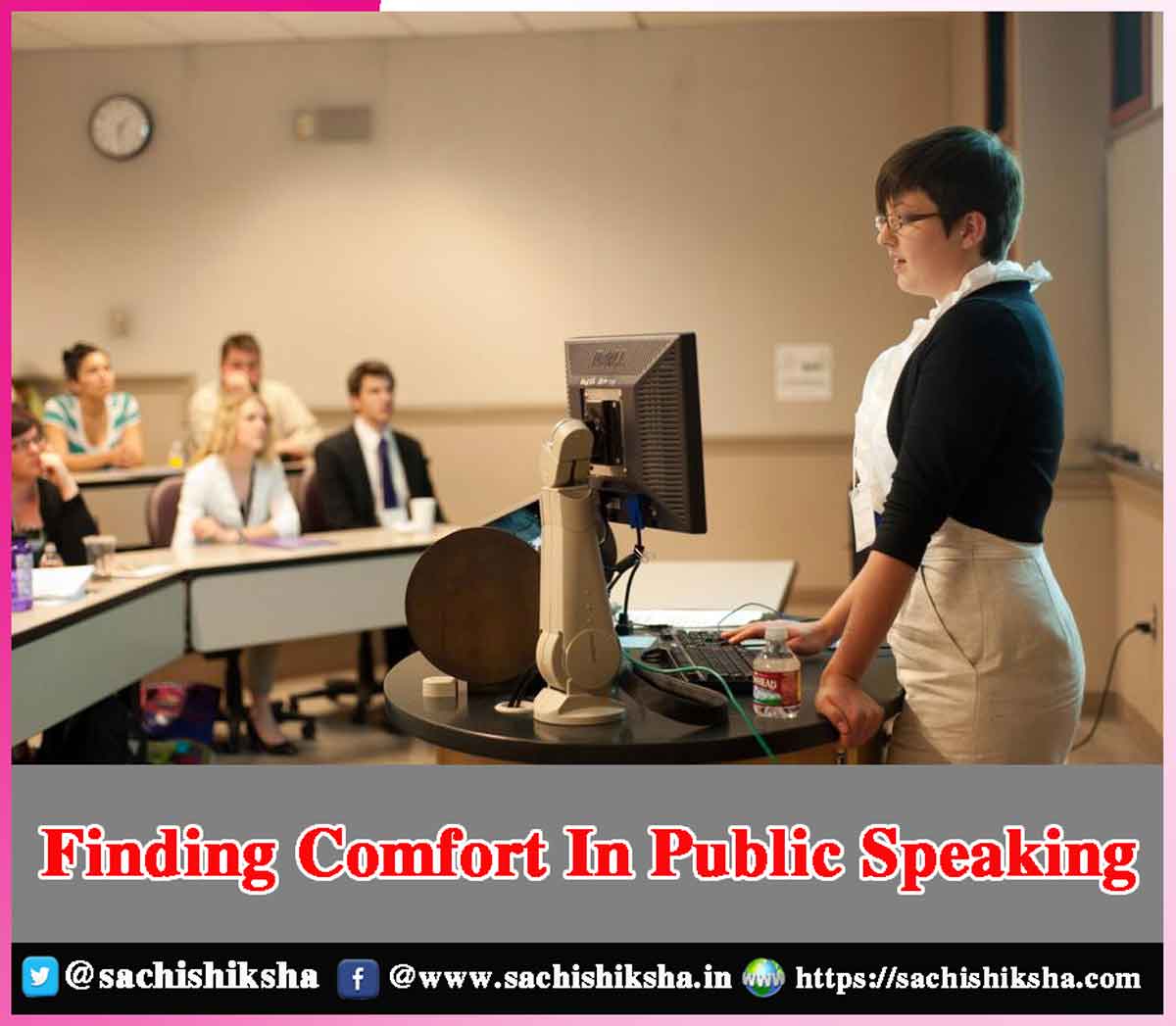Finding Comfort In Public Speaking
Introduction Public speaking is a common source of anxiety for many individuals, but finding comfort in it is achievable with the right mindset, preparation, and strategies. Public speaking is an essential skill in many fields, facilitating effective communication, influencing others, and conveying ideas clearly. This essay explores the journey to finding comfort in public speaking, discussing the benefits, challenges, and practical techniques to enhance confidence and proficiency.
Table of Contents
The Importance of Public Speaking
Professional Advancement:

Influence and Persuasion:
The ability to speak well in public enhances one’s ability to influence and persuade others. Whether it’s motivating a team, advocating for a cause, or selling a product, persuasive public speaking is a powerful tool for achieving desired outcomes.
Personal Development:
Public speaking contributes to personal growth by building confidence, improving communication skills, and fostering self-awareness. It encourages individuals to step out of their comfort zones, confront their fears, and develop a stronger sense of self-assurance.
Challenges in Public Speaking
Fear and Anxiety:
Glossophobia, or the fear of public speaking, is a widespread issue. This fear can manifest as physical symptoms such as sweating, trembling, and rapid heartbeat, as well as mental blocks like forgetting one’s lines or losing focus. Overcoming this fear is a significant challenge for many aspiring public speakers.
Lack of Preparation:
Inadequate preparation can lead to poor performance and increased anxiety. Without proper planning and rehearsal, speakers may struggle to convey their message effectively, leading to a lack of confidence and audience engagement.
Negative Self-Perception:
Many individuals have a negative self-perception when it comes to public speaking, doubting their abilities and fearing judgment from others. This negative mindset can hinder performance and prevent speakers from realizing their full potential.
Strategies for Finding Comfort in Public Speaking
- Preparation and Practice: Preparation is the foundation of effective public speaking. Thoroughly researching the topic, organizing the content, and practicing the speech multiple times can significantly boost confidence. Practicing in front of a mirror, recording oneself, or rehearsing with a trusted friend or mentor can provide valuable feedback and help identify areas for improvement.
- Understanding the Audience: Knowing the audience is crucial for tailoring the speech to their interests, needs, and expectations. Understanding the audience’s demographics, knowledge level, and preferences can help in crafting a message that resonates and engages them. This connection with the audience can enhance the speaker’s confidence and reduce anxiety.
- Developing a Strong Opening and Closing: A strong opening grabs the audience’s attention and sets the tone for the speech, while a compelling closing leaves a lasting impression. Starting with an interesting anecdote, a thought-provoking question, or a relevant quote can capture the audience’s interest. Concluding with a powerful summary or a call to action reinforces the message and leaves the audience with something to ponder.
- Visual Aids and Technology: Using visual aids like slides, videos, or props can enhance the presentation and make it more engaging. Visual aids can help in illustrating key points, keeping the audience’s attention, and providing visual support for the speaker’s message. However, it’s essential to use them sparingly and ensure they complement rather than overshadow the speech.
- Managing Nervousness: Managing nervousness involves adopting techniques to calm the mind and body before and during the speech. Deep breathing exercises, visualization, and positive affirmations can help reduce anxiety. Practicing mindfulness and staying present in the moment can prevent the mind from wandering and alleviate stress.
- Building Confidence through Experience: Gaining experience is one of the most effective ways to build confidence in public speaking. Seeking opportunities to speak in front of different audiences, whether through professional engagements, community events, or public speaking clubs like Toastmasters, can provide valuable practice and exposure. Each experience helps in refining skills, learning from mistakes, and gaining confidence.
- Receiving and Incorporating Feedback: Constructive feedback is essential for growth and improvement. Seeking feedback from trusted sources, such as colleagues, mentors, or public speaking coaches, can provide insights into strengths and areas for improvement. Incorporating feedback and continuously refining one’s speaking style can lead to significant progress over time.
- Embracing Authenticity: Authenticity is key to connecting with the audience and delivering a compelling speech. Embracing one’s unique style, personality, and perspective can make the speech more relatable and impactful. Authentic speakers are perceived as genuine and trustworthy, fostering a deeper connection with the audience.
- Developing a Positive Mindset: Cultivating a positive mindset involves reframing negative thoughts and focusing on strengths and achievements. Instead of dwelling on potential mistakes or failures, speakers can remind themselves of past successes and the value they bring to the audience. Positive visualization, where speakers imagine themselves delivering a successful speech, can boost confidence and reduce anxiety.
- Continuous Learning and Improvement: Public speaking is a skill that can always be refined and improved. Continuously seeking opportunities for learning, whether through formal training, online courses, or reading books on public speaking, can enhance one’s skills and knowledge. Staying updated with best practices and new techniques can keep speakers at the top of their game.
Conclusion
Finding comfort in public speaking is a journey that involves overcoming fear, preparing thoroughly, understanding the audience, and embracing authenticity. By adopting strategies such as managing nervousness, seeking experience, receiving feedback, and developing a positive mindset, individuals can enhance their public speaking skills and build confidence. Public speaking is not only a valuable professional skill but also a powerful tool for personal growth, influence, and effective communication. With dedication, practice, and the right approach, anyone can become a confident and compelling public speaker.














































